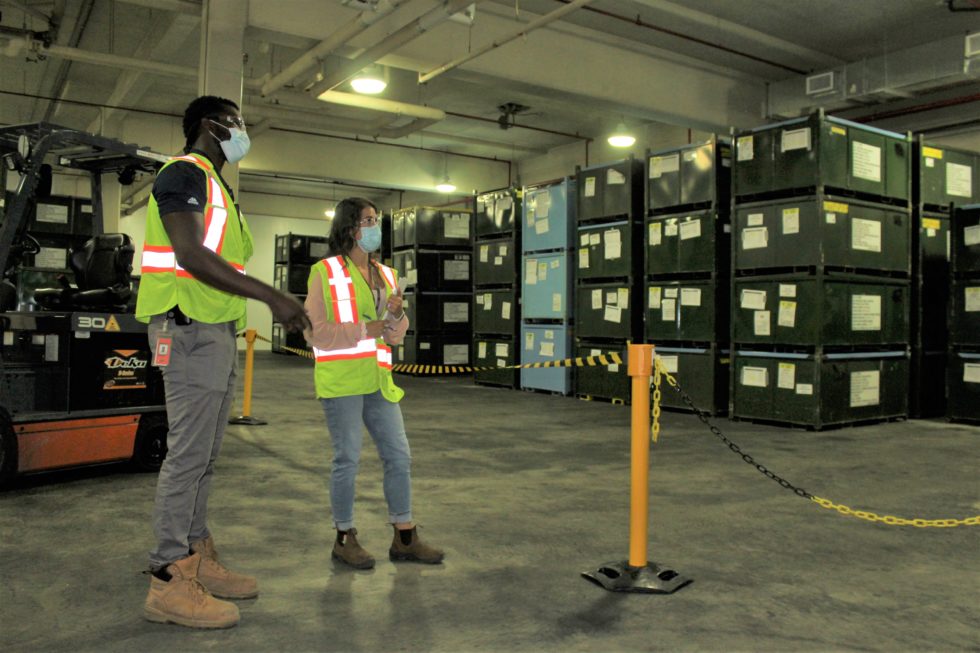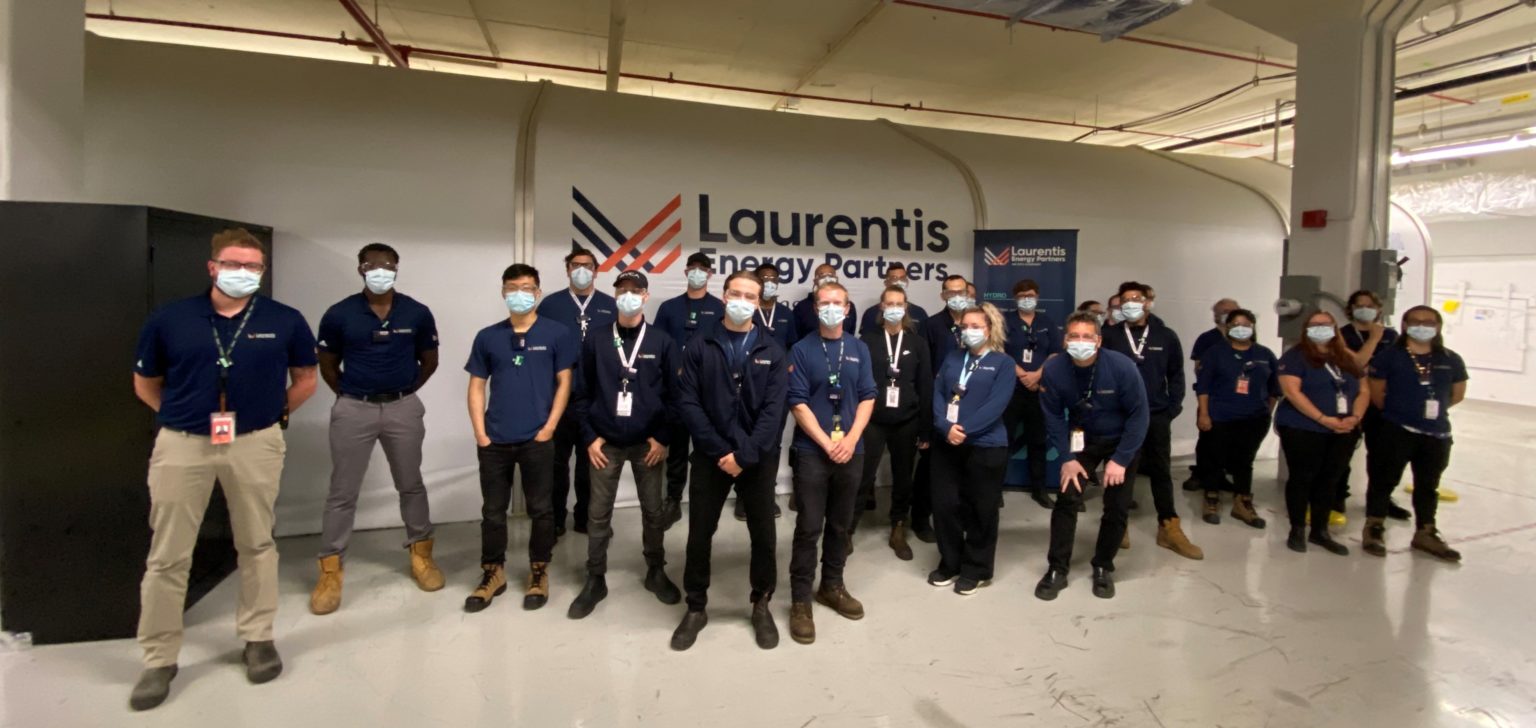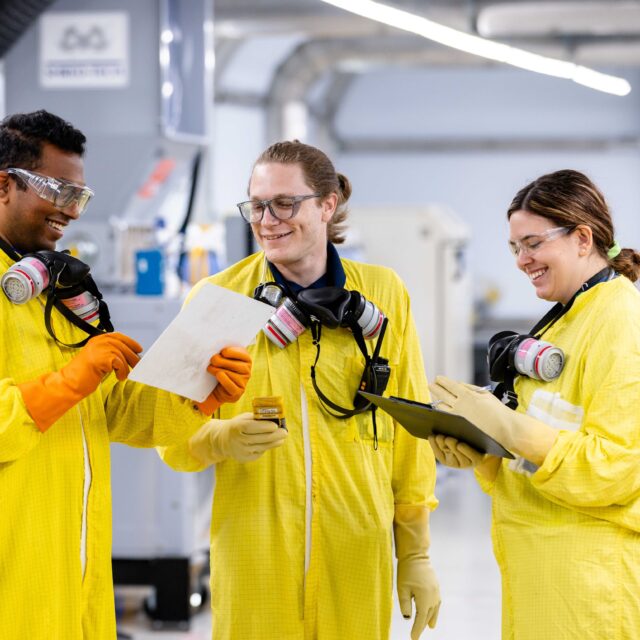Laurentis and McMaster’s Clean Energy Sorting and Recycling Initiative is making strides
With nearly 60 percent of Ontario's electricity coming from nuclear - and more regions around the world looking to nuclear as a source of clean, low-carbon energy - it's important for the industry to strive for the highest levels of environmental protection.
That's the mission of a research project underway between Laurentis Energy Partners and McMaster University.
It was just an idea on paper in April 2020. Now, a little over a year later, it's a safe, efficient, operating laboratory for innovation. The Clean Energy-Materials Sorting and Recycling Research Initiative (CMSR) in Hamilton, Ontario, is making strides toward advancing nuclear-energy innovations and supporting environmental solutions across the nuclear industry.

Researchers at the CMSR are exploring new techniques to process low-level nuclear byproducts. These materials include used worker garments, shoe covers and gloves, mops and rags used in cleaning, small tools, and other industrial materials used in the nuclear industry.
Such materials are classified by nuclear regulators as low-level radioactive waste, with minimal levels of contamination. On examination in the laboratory, some of the materials are even found to be free of any radioactivity at all. McMaster and Laurentis are engaging in research to better understand the source term characterization of the low-level waste.
Until now, these materials have been sorted by hand to determine what can be safely recycled and what could be processed by incineration or compaction, to reduce volume and the environmental footprint. It's a low-tech, time-consuming and labour-intensive method of sorting, but it's the standard practice at OPG's Western Waste Management Facility and in other waste-sorting facilities around the world.
Working together, Laurentis and McMaster are exploring new methods and technologies, such as automated sorting and optimized radiation detection methods, to further sort and help divert more nuclear byproducts to re-use and recycling. And they're making good progress.

Last month, the facility, employing 30 staff, achieved 92 per cent of their processing target, currently in the hundreds of cubic metres a month, all while keeping a strong focus on safety, quality, and environmental stewardship.
"What we're really doing is taking action to fix and correct the past, present and future of nuclear waste," said Erik Rogerson, Laurentis CMSR Operations Manager. "So far, we've been able to re-characterize, further reduce or recycle the materials that come to our facility by about 50 per cent. That's something our team can be proud of."
The materials in this research initiative are collected from both the daily operations of OPG-owned generating stations, as well as from low-level storage buildings at OPG's Western Waste Management Facility at the Bruce nuclear site in Kincardine, Ontario.
"We have an opportunity here to really change the nuclear waste picture in Ontario, Canada, and across the world", said Erik. "We're defining best practices and responding to real-time industry problems, creating long-term solutions." "I look forward to seeing what our team and McMaster can achieve over the remainder of this project and beyond."
It's a win for the environment - and it's also good for business. Lessons learned in Laurentis' laboratory in Hamilton may have applications in nuclear operations around the world. By efficiently reducing stored volumes and maximizing free release or recycling of clean materials, operators can reduce the need to build new storage buildings, cut the cost of decommissioning stations, and reduce space needed in eventual permanent disposal facilities.
Laurentis is a commercial subsidiary of Ontario Power Generation, one of the largest and most diverse clean-energy generators in North America. Based in Canada and with operations in Europe, Laurentis offers expertise in nuclear, hydro, and solar generation, inspections and engineering, nuclear transportation and materials recycling, and medical isotopes.
Laurentis is also a partner in the Centre for Canadian Nuclear Sustainability (CCNS), a hub of industry collaboration to develop advances in decommissioning.


